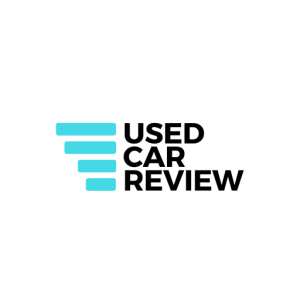Karen Gouws is a highly experienced and award-winning used car sales expert with over two decades of experience. She is a Senior Sales Executive and Assistant Manager at Prestige Auto Sales, a used car dealership in Gqerberha, Eastern Cape, operating for over 30 years. We sat down with her to talk about buying a used car from a reputable pre-owned dealer.
QUESTION: I’m in the market for my first car and considering buying a used vehicle. I’ve heard that financing is often a good option for many first-time buyers. What’s the process I need to follow if I want to finance a used car purchase?
Karen: You’re right – financing is a very popular option, especially for first-time buyers who may not have the full amount upfront. The process can seem a bit daunting at first, but with the right information, it’s actually quite straightforward. To begin with, you’ll want to decide on your budget – how much can you afford in terms of monthly payments? Once you have a figure in mind, you’ll approach a banking institution or finance company that offers vehicle financing. They’ll assess your financial situation, like your credit score, income, and employment status, to see how much they’re willing to loan you. Once the finance is approved, you’ll come back to the dealership to finalise the car sale. From there, it’s just a matter of signing a few contracts, and you’ll be driving off in your new (well, new to you!) car.
QUESTION: That sounds simple enough. But what about the documents? I’ve heard that there’s something called FICA that I’ll need to provide. What is it, and what other documents will I need?
Karen: Ah, yes – FICA is an important step in the process. In South Africa, FICA stands for the Financial Intelligence Centre Act, and it’s legislation designed to prevent money laundering and other financial crimes. Whenever you’re opening an account, applying for a loan, or making a significant financial transaction, you’ll need to provide FICA documentation. For vehicle finance, the required documents include proof of identity, which is typically your valid South African ID book or ID card. You will also need to provide proof of your address, usually in the form of a utility bill or bank statement that’s no older than three months. Lastly, you’ll need proof of income, which could be your most recent payslips or bank statements showing your salary deposits. If you’re self-employed, you’ll need financial statements or a letter from your accountant. Additionally, you’ll need a valid driver’s licence as a requirement for both purchasing and driving the car. Some institutions may ask for extra documentation, such as proof of residence from a landlord or a lease agreement, especially if you’re renting. It’s always a good idea to keep these documents easily accessible, as you may need them at various stages of the process.
QUESTION: So, with all these documents in hand, how does the dealership help facilitate the finance process?
Karen: Great question! As a dealership, we work closely with several major banks and financial institutions. Once you’ve chosen your car and provided your documents, we can submit your finance application on your behalf. This helps streamline the process, as we have dedicated relationships with these institutions and can make sure your application is processed quickly. We’ll act as the middleman, so to speak, keeping you informed throughout. Once the bank has approved the finance, you’ll be given a breakdown of the loan terms—things like the interest rate, repayment period, and any additional fees. Our job is to make sure you understand all of this before signing, so don’t be afraid to ask questions!
QUESTION: It’s great to know that the dealership plays such an active role in the process. But as a first-time buyer, what should I be on the lookout for when choosing a used car? What advice can you offer to ensure I don’t end up with something that’s going to be a headache?
Karen: I completely understand where you’re coming from—it can be nerve-wracking, especially with all the stories out there about used cars with hidden issues. The key is to buy from a reputable dealership like Prestige Auto Sales. Reputable dealerships offer vehicles that have been thoroughly inspected and serviced before they’re sold. First and foremost, you should always ask for the car’s full service history. This will give you an indication of how well the vehicle has been maintained over the years. Be cautious if there are gaps in the service record, as this could be a red flag that the car has not received the regular care it needs. Another factor to consider is mileage. While high mileage isn’t necessarily a bad thing, it’s important to know whether the vehicle has been primarily used for long-distance travel or city driving. City driving tends to put more strain on a car’s components like the brakes and gearbox, while highway driving is generally less taxing on the vehicle. When it comes to the car’s mechanical condition, make sure the dealership performs a thorough mechanical inspection before the sale. At Prestige, we provide a multi-point inspection report, which details the exact condition of the car. You should also be given a roadworthy certificate, as it’s a legal requirement in South Africa. If the car you’re considering no longer has its manufacturer’s warranty, I would recommend purchasing an extended warranty that covers major components like the engine and gearbox. This can save you a lot of money in the long run. And of course, always take the car for a test drive before making any decisions. Pay attention to how it feels on the road—if it pulls to one side, makes any strange noises, or struggles to start, those could be signs of underlying issues that need to be addressed.
QUESTION: That’s really helpful. It sounds like buying from a reputable dealership is key to avoiding those common pitfalls. Speaking of warranties and service, is there anything else I should be aware of when buying a used car that might not be obvious to a first-time buyer?
Karen: Beyond the basics of warranties and service history, it’s important to keep a few other things in mind. One thing first-time buyers often overlook is depreciation. All cars depreciate in value over time, but some brands and models hold their value better than others. For example, in the South African market, certain brands like Toyota and Volkswagen tend to retain their value quite well, which can be a factor to consider if you plan on selling the car in a few years. Another thing to think about is insurance. Depending on the make and model of the car, insurance premiums can vary significantly. High-performance vehicles or cars that are considered high-risk by insurers will naturally come with higher premiums. I always recommend getting a few insurance quotes before you settle on a car to make sure it fits your budget. Then there are the running costs. Even if the purchase price of a car is within your budget, you’ll want to think about the ongoing costs, such as fuel consumption, tyre replacements, and regular servicing. A car that might be cheap upfront could end up costing you more in the long run if it has high running costs. Another thing to be mindful of is the financing terms. While it can be tempting to go for the lowest possible monthly payment, it’s important to look at the bigger picture. A longer repayment term might mean lower instalments, but you’ll end up paying more in interest over time. I always advise striking a balance between affordable repayments and a reasonable loan term, so you don’t end up spending more than necessary.
QUESTION: Those are some great points, especially about depreciation and insurance. Now, with so many cars on the market, how do you advise buyers to narrow down their choices? It can be overwhelming with so many brands and models available.
Karen: It can be overwhelming, yes! My advice is to start by thinking about your needs and lifestyle. Are you looking for a small, fuel-efficient car for city driving, or do you need something bigger for family trips? The first step is to set a clear budget. This will help you eliminate cars that are too expensive, not only in terms of the purchase price but also the ongoing costs such as insurance, fuel, and maintenance. Once you have your budget in place, think about what type of vehicle suits your lifestyle. If you need lots of boot space for shopping or luggage, a hatchback might be more practical than a sedan. On the other hand, if you’re after comfort and performance, an SUV might be more up your alley. It’s also worth considering the brand’s reputation. Some brands are known for their reliability and longevity, while others are associated with higher maintenance costs. For example, Japanese brands like Toyota and Honda are often praised for their reliability, while German brands like BMW and Audi are known for their performance, though they can be more expensive to maintain. Finally, think about the features you really need. Do you prioritise safety features like airbags and anti-lock brakes, or are you more interested in modern tech like Bluetooth connectivity and parking sensors? It’s important to choose a car that fits your needs without overpaying for extras you might not use.
QUESTION: That’s great advice. Lastly, what should I look for when it comes to the dealership itself? How can I be sure I’m buying from a reputable place?
Karen: The reputation of the dealership is incredibly important. Before making any decisions, it’s a good idea to check online reviews and customer feedback. A reputable dealership will have mostly positive reviews, and you’ll notice that they take the time to respond to any negative feedback professionally and constructively. Another thing to look out for is whether the dealership is accredited with relevant industry bodies, such as the Retail Motor Industry Organisation (RMI) or the Motor Industry Ombudsman of South Africa (MIOSA). These accreditations indicate that the dealership follows industry standards and is held accountable by a governing body. It’s also important to ask about after-sales service. A reputable dealership will offer support after the sale, whether that’s through warranties, servicing, or help if anything goes wrong with the car. Finally, transparency is key. The dealership should be upfront about the car’s history, including any accidents or repairs it may have undergone. If the dealership is reluctant to provide this information, that’s a red flag. A good dealership will want to build trust with its customers and make sure you feel confident in your purchase.




